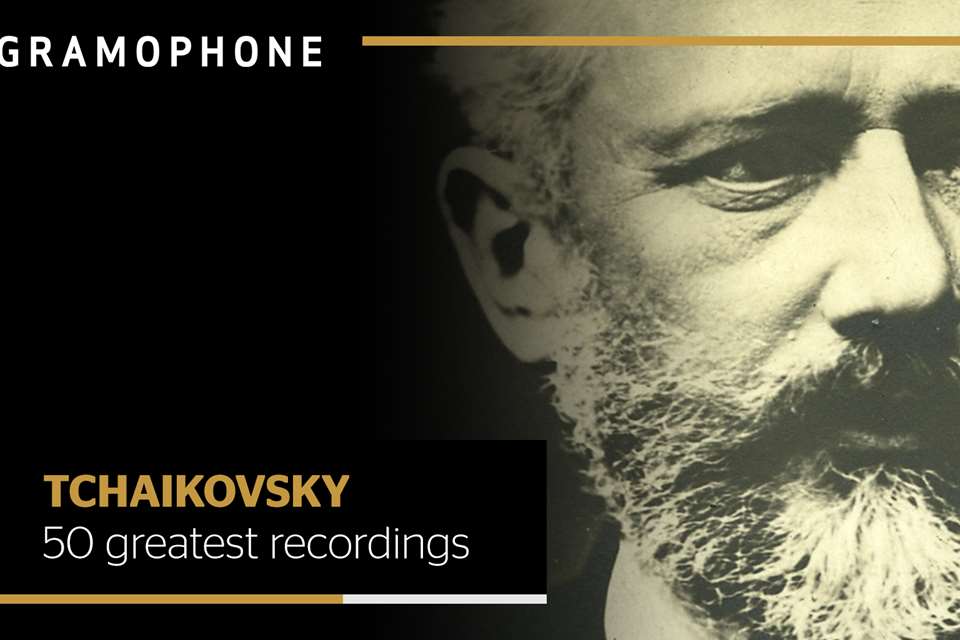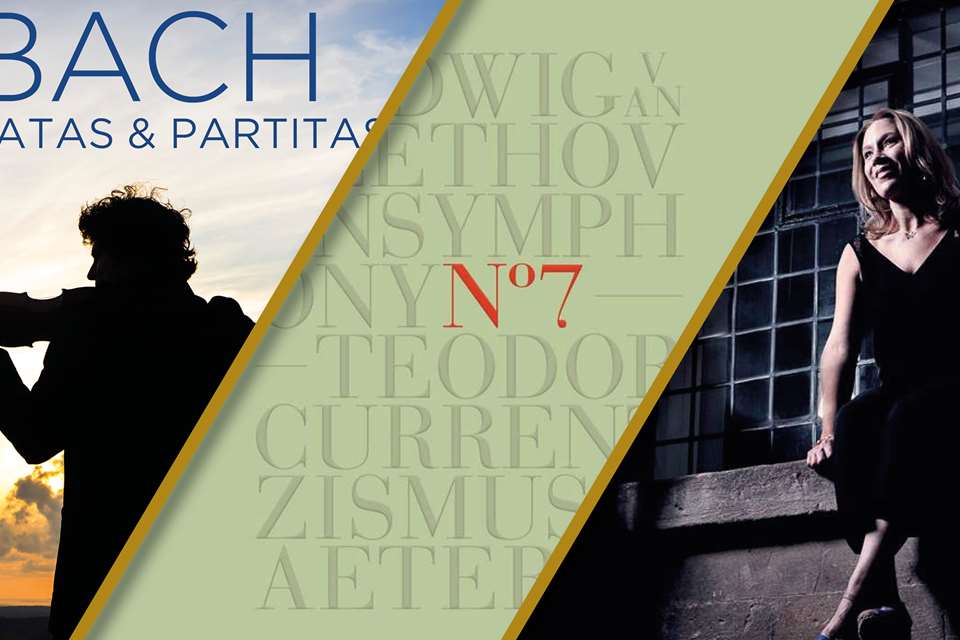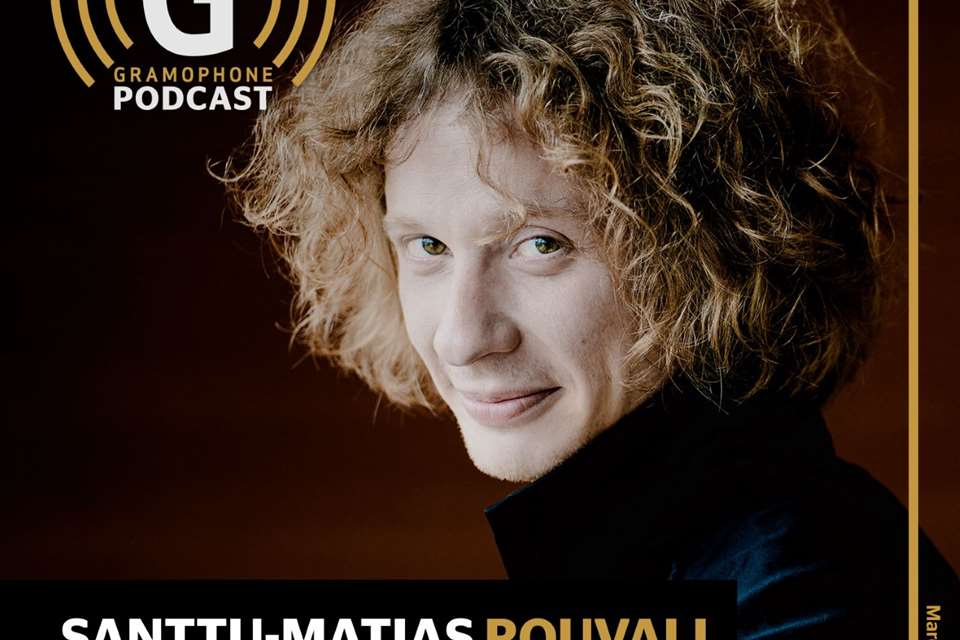The Top 10 Tchaikovsky albums
Gramophone
Monday, May 24, 2021
Explore recommended recordings from the Russian master of melody
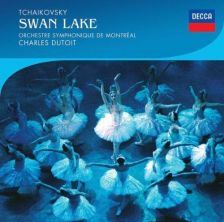
Swan Lake
Montreal Symphony Orchestra / Charles Dutoit
(Decca)
'Dutoit finds the rhythmic spring throughout, yet is elegant in the lyrical music and the two famous waltzes have attractive panache. It is above all a romantic reading, and rises to the occasion, appropriately reaching its peak in the great final scene, where the Swan theme is giving its frisson-creating transformation at the B major climax. Here the resplendent Decca recording is wonderfully expansive and throughout the glowing St Eustache acoustic adds much to the beauty of the sound...' Read the review
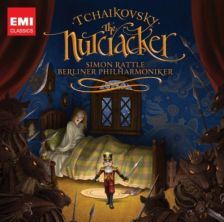
The Nutcracker
Berlin Philharmonic / Simon Rattle
(EMI Classics)
'One of the impressive aspects of this new two-disc set is that it is so “visual”. It conjures up in the mind’s ear the pictures of domestic Christmas bliss and petulance in the first act, and the multifarious enchantments of Confiturembourg in the Second. There is a consistent sense here that Rattle has the ballet’s scenario and its detail firmly in view, so that the children’s fluctuating emotions of wonderment, vexation and disappointment are clearly etched in, the appearance of Drosselmayer evoking that equivocal feeling of awe, glee and suspicion, the battle engaged with gusto...' Read the review
Subscribing to Gramophone is easy, you can choose how you want to enjoy each new issue (our beautifully produced printed magazine or the digital edition, or both) and also whether you would like access to our complete digital archive (stretching back to our very first issue in April 1923) and unparalleled Reviews Database, covering 50,000 albums and written by leading experts in their field.
To find the perfect subscription for you, simply visit: gramophone.co.uk/subscribe
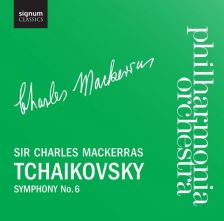
Symphony No 6 'Pathetique'
Philharmonia Orchestra / Charles Mackerras
(Signum)
'There is an immediacy and incisive, almost forensic clarity to this 2009 live performance that makes for tremendous drama at points of crisis. The crack of doom heralded by timpani at the start of the development is all-out electrifying (accentuated, of course, by a gripping, almost inaudible “fade to black” in the bass clarinet beforehand) – indeed, the forcefulness of the timpani and brass-playing throughout is nothing if not intimidating. And what a dark, saturating sostenuto from the strings at the climax – broadly paced, with trombones bearing down unforgivingly...' Read the review
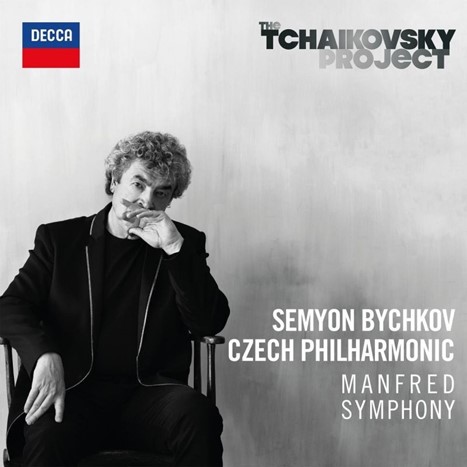
Manfred Symphony
Royal Liverpool Philharmonic Orchestra / Vasily Petrenko
(Naxos)
'Petrenko’s Manfred emerges from the gothic greys of the opening wind chorale to vent his heartache in an emotive surge of string sound. And to ensure that we’ve grasped the measure of his despair, he repeats himself. Petrenko’s Byronic petulance makes something really stirring of the self-loathing – Tchaikovsky’s as much as that of Byron’s anti-hero. But the real miracle of this first movement is the vision of idealised love emerging so tenderly in what one might normally call the development. The palest clarinet against muted tremolando strings takes us directly to the heart of the matter, and Petrenko and his orchestra don’t disappoint. Likewise in the epic coda, where anguish is again writ large in overreaching horns and trumpets...' Read the review
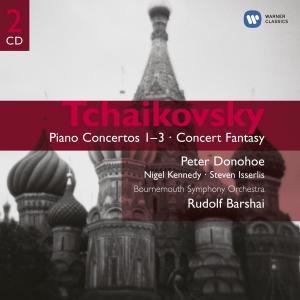
Piano Concerto No 2
Peter Donohoe pf Bournemouth Symphony Orchestra / Rudolph Barshai
(EMI/Warner Classics)
'The recording is splendid. It has the right sort of brilliance and vividness, the balance is excellent and the ambience of Poole Arts Centre in Dorset seems just right for the music. Bravo, too, to Andrew Keener and balance engineer Mike Clements. This is one of the records of the year, not just the finest ever recording of a Cinderella work (and I don't forget Noel Mewton-Wood on his early Nixa mono LP) but the best performance I have ever heard of it. It is not a masterpiece, perhaps, but has some superb moments and they are all realized here. The work is played absolutely complete...' Read the review
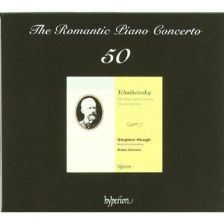
Piano Concertos Nos 1-3
Stephen Hough pf Minnesota Orchestra / Osmo Vänskä
(Hyperion)
'The old warhorse comes up as fresh as paint. Even with 130 alternatives on the market, this is an exceptional reading with brisk tempi and subtle nuances, such as the slight tenuto at 5'23" in the last movement, giving special pleasure. The electrifying pace Hough injects into the codas of No 1 and the Concert Fantasia are suitably exciting, though these are nothing compared to the tumultuous final pages of No 2 (a tremendous performance). The audience whoops in amazement...' Read the review
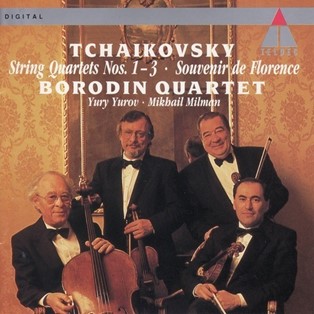
String Quartets. Souvenir de Florence
Yuri Yurov va Mikhail Milman vc Borodin Quartet
(Warner Teldec/Elatus)
'The Second and Third Quartets are noticeably more symphonic and particularly rich in the kinds of harmonic clashes and sequences that Tchaikovsky normally dressed for the orchestral arena. Even minor details, like the quick-fire exchanges near the beginning of No 3's Allegretto, instantly suggest 'woodwinds' (you can almost hear oboes, flutes and clarinets jostle in play), while both finales could quite easily have been transposed among the pages of the early symphonies. But if these and other parallels are to register with any conviction, then performers need to locate them, and that's a challenge the Borodins meet with the ease of seasoned Tchaikovskians...' Read the review
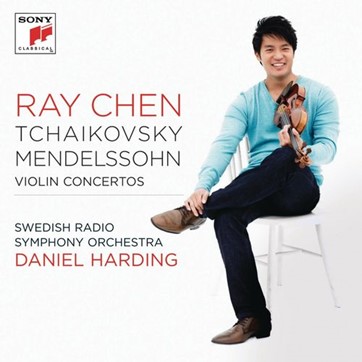
Violin Concerto
Ray Chen vn Swedish Radio Symphony Orchestra / Daniel Harding
(Sony)
'Ray Chen played these concertos at the Menuhin Competition in 2008 (Mendelssohn) and the Queen Elisabeth Competition in Brussels in 2009 (Tchaikovsky). It’s easy to appreciate why he won first prize on both occasions. Magnificent technique, of course; the trickiest passages seem like child’s play to him. But what impresses most is Chen’s musicianship – he’s able to make the listener aware of the emotional import of each phrase, apparently spontaneously, as though he’s only just considered playing it that way...' Read the review
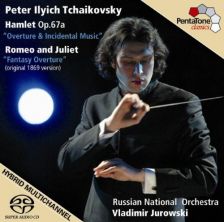
Romeo & Juliet
Russian National Orchestra / Vladimir Jurowski
(Pentatone)
'Those who know the original 1869 version of the Romeo and Juliet Fantasy Overture will be aware that it’s another example of how much more interesting, though not necessarily better, a composer’s first thoughts can be. I personally love the gently pious characterisation of Friar Lawrence in this more protracted introduction; I love, too, the earlier premonition of the great love theme and the way Tchaikovsky quite literally tosses it about in the more radical and certainly more violent development of the fight music. All gone in the revision. Jurowski savours the differences and makes capital of the anomalies. Very exciting...' Read the review
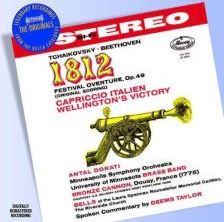
1812 Overture
Minneapolis Symphony Orchestra / Antal Dorati
(Living Presence)
'Dorati's conducting is brisk, incisive and appropriately dramatic. 1812 in particular (Dorati's second Minneapolis recording of the piece for Mercury) suggests a rare spontaneity, with a fiery account of the main 'conflict' and a tub-thumping peroration where bells, band, guns and orchestra conspire to produce one of the most riotous key-clashes in gramophone history...' Read the review
Thank you for visiting...
We have been writing about classical music for our dedicated and knowledgeable readers since 1923 and we would love you to join them.
To find the perfect subscription for you, simply visit: gramophone.co.uk/subscribe




